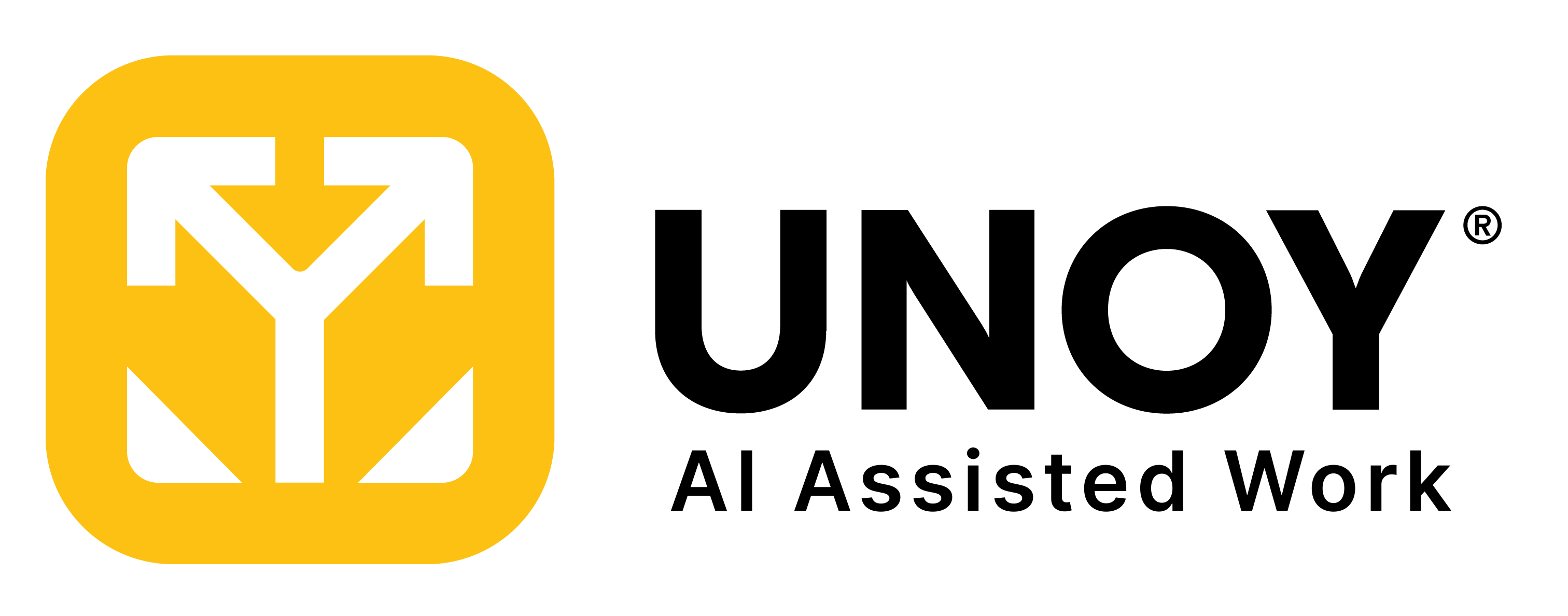The Protection Act stipulates, among other things, who is considered a whistleblower and how they are protected, which companies have to set up and operate internal reporting channels, how internal and external reporting channels have to be designed and how tips are to be dealt with. In addition, special provisions apply in certain areas, for example due to the Banking Act. Whistleblowers Anyone who becomes aware of a violation of rights in the course of their professional activity and uncovers it through a tip belongs to the group of protected whistleblowers. In addition to employees, these are also e.g. interns, members of executive bodies (management …), employees of contractors and (sub)suppliers. Scope There is much to suggest, but the law is unclear in this regard, that the HSchG applies to employers with at least 50 employees if there is a possibility that they may be affected by information in the areas specified by the HSchG. The HSchG can also apply below this threshold if companies are active in certain sensitive areas (e.g. financial services and products). It does not apply to sole traders. The HSchG applies to notification of (suspected) violations of regulations in the areas of public procurement, financial services, product safety, road safety, environmental protection, food safety, animal welfare, public health, consumer protection, data protection and corruption. Whistleblowers deserve protection Whistleblowers are entitled to use the procedures and the protection for the reporting from the time the report is submitted if they can assume sufficient reasons at the time of the report based on the actual circumstances and the information available to them that the information they provided indications are true and fall within the scope of the HSchG. Confidentiality, duty of confidentiality and protection of identity The identity of whistleblowers must be protected by internal and external bodies. This also applies to all other information from which the identity of whistleblowers can be directly or indirectly derived. Disclosure is only permitted in very specific, narrowly defined cases.
What are whistleblower systems for?
Whistleblowing serves to gain knowledge of violations in order to be able to react to internal misconduct in good time and avert damage.

Protection of whistleblowers and reporting systems
In principle, whistleblower systems should ensure both Europe-wide minimum standards and the hitherto often neglected protection for whistleblowers in order to receive and clarify more reports of violations of Union law. On the one hand, affected companies, the state and municipalities are faced with major challenges in implementing suitable whistleblower systems. On the other hand, the establishment of reporting offices offers the opportunity, thanks to timely information about violations, to be able to limit damage in a timely manner and avoid public scandals, because whistleblowers are regularly faced with the decision to report internally or to (law enforcement) authorities.
What do I have to consider as an entrepreneur regarding the Whistleblower Protection Act?
The Whistleblower Protection Act (HSchG) is an important step towards creating a more ethical and responsible workplace culture. It provides protection for whistleblowers and requires companies and public sector entities to set up internal whistleblower systems and protect whistleblowers. In this article we will explain what entrepreneurs need to know about this law and how best to implement it.
What is the Whistleblower Protection Act?
The Whistleblower Protection Act is a German law that came into force in February 2023. It protects whistleblowers who report misconduct or violations of rights in public sector companies and legal entities. The law is an important step towards creating a more ethical and responsible workplace culture and offers whistleblowers protection from retaliation such as termination, demotion or discrimination. The HSchG is intended to contribute to promoting an open and transparent corporate culture and to effectively combating misconduct.
What violations does the Whistleblower Protection Act cover?
(material scope)
Here is to be signed between Austria and Germany
Austria
The Whistleblower Directive and the UVHG target violations of Union law, in particular: public procurement; financial services, financial products and financial markets and prevention of money laundering and terrorist financing; product safety and compliance; road safety; Environmental Protection; radiation protection and nuclear safety; food and feed safety, animal health and welfare; public health; consumer protection; Protection of privacy and personal data and security of network and information systems; financial interests of the Union and internal market rules. Excluded are regulations for the protection of classified information or legal, notarial and medical confidentiality and criminal proceedings.
Germany
The Whistleblower Protection Act covers violations of criminal law, administrative law, labor law, commercial law and environmental law. The violations can be, for example, fraud, theft, corruption, discrimination, bullying, sexual harassment, violations of occupational safety regulations or environmental laws. However, the HSchG does not apply to violations of private law or tax law.
Who is covered by the Whistleblower Protection Act?
(personal scope)
The Whistleblower Protection Act applies to employees, civil servants, trainees, apprentices and contractors who become aware of misconduct or violations of law in the course of their work. The factual scope of the HSchG includes violations of criminal law, administrative law, labor law, commercial law and environmental law. The HSchG generally applies to indications of violations of the law in companies and in legal entities in the public sector with at least 50 employees. The law also applies below this threshold in certain regulated areas under Part I.B and Part II of the Annex to the Whistleblower Directive. These include, for example, the financial services sector and the prevention of money laundering and terrorist financing. The HSchG also applies to whistleblowing in the event of a breach of regulations that are listed taxatively, such as public procurement, environmental, consumer and data protection, and EU financial interests.
HSchG does not apply to sole proprietors.
What are the obligations of companies and legal entities in the public sector?
Companies and legal entities in the public sector are required by Section 11 of the HSchG to set up an internal whistleblowing system for their employees, staff and temporary workers. The internal system must be set up in such a way that it encourages whistleblowers to give preference to the internal unit over an external unit. The whistleblower system must be designed to be confidential, anonymous and accessible. It should be clearly communicated how the system can be used and what steps will be taken to investigate whistleblowing. The system should be independent of management and operated by an office specifically responsible for it. Employees should be informed about the internal whistleblower system and how to protect whistleblowers. Training can help raise awareness and encourage employees to raise concerns or questions. The internal whistleblower system should ensure a rapid response to incoming tips. Companies should have a plan for investigating and remedying misconduct or violations of law, led by an office specifically responsible for this.
Who is eligible to report?
Only active or former employees have access to the internal whistleblower system if they have obtained information about violations in connection with their professional activities. Access to the external whistleblower system is available to all persons who have obtained information about violations in connection with their professional activities. This includes active, former and future employees, self-employed persons, shareholders and administrative, management or supervisory bodies, as well as volunteers and interns.
Internal and external reporting systems
The internal reporting system can be designed as an e-mail box or a website-based platform. The latter has the advantage of anonymous reporting, which ensures confidentiality and also encourages whistleblowers to report internally. In this way, the report can be processed internally and a possible violation can be remedied without involving third parties. The provincial ombudsman is responsible for the external reporting of violations of Union law in matters of provincial legislation. An external report may be made after or without prior use of the internal whistleblower system. Whistleblower systems must be securely designed, established and operated to protect the confidentiality of the identity of the whistleblower and others mentioned in the report. Unauthorized persons must not have access to the reports; even the possibility of access by an IT administrator violates confidentiality. For ease of implementation, internal reporting channels can be operated jointly by municipalities or by joint government services.
Internal reporting channels
Companies with 50 or more employees are obliged to set up a reporting system. It is irrelevant whether the employees are full-time or part-time. In the case of changing or seasonally fluctuating numbers of employees, the minimum number is to be determined on the basis of the average number of employees during the previous calendar year. According to the HSchG, a natural person (e.g. compliance officer) as well as a department or other organizational unit (e.g. HR department) within the company can be considered as an internal reporting office. It is up to the respective company whether information can only be provided verbally or in writing or in both forms. The internal reporting office can also be outsourced to a third party (e.g. consulting company). Examples of internal reporting channels: Complaint mailbox, online platform, intranet, e-mail address, telephone hotline, ombudsman office, joint group reporting office Employer’s obligation The employer shall inform all employees in the company by means of an easily accessible and comprehensible form about the possibility and procedure for making a report, for example via newsletters, notices or e-mail. The employer shall also ensure that the internal reporting channels have adequate human and financial resources. The technology and the means of communication to be used between the internal reporting office and the potential whistleblower are not specifically specified by the law. The confidentiality and identity of the whistleblower, as well as of third parties, must be maintained at all times. The identity of the whistleblower may not be disclosed without his or her consent. Caution: It must be ensured that the reporting office can also follow up anonymous tips and that the anonymous whistleblower is equally protected. The internal reporting system should be designed to be so attractive that whistleblowers primarily address it. Note: Although no sanction is provided for the non-establishment of the internal reporting office, companies should be aware that the establishment of the internal reporting office can prevent risks that may be associated with an external report or publication, such as damage to reputation.
External reporting channels
In addition to the establishment of internal reporting channels, the HSchG also provides for the establishment of external reporting channels. In principle, the Federal Office for the Prevention of and Fight against Corruption (BKA) is intended and responsible as an external reporting office. However, the Financial Market Authority (FMA) or the Money Laundering Reporting Office are also responsible for the area of financial service providers. Note: Whistleblowers should primarily turn to the external reporting office if processing via the internal system is not possible, not appropriate, not reasonable, has proven unsuccessful or has no prospect of success. Deadline for implementation A transitional period of six months from the entry into force of the Whistleblower Protection Act applies to the establishment of an internal and external reporting office. This means that companies with at least 250 employees are required to set up an internal reporting office from August 25, 2023. Companies with 50 to 249 employees must set up an internal reporting office by December 17, 2023.
How can companies set up an internal whistleblower system?
Establishing an internal whistleblower system is mandatory for companies and legal entities in the public sector. An effective whistleblower system should have the following characteristics: Confidentiality and anonymity Whistleblowers often wish to remain anonymous to avoid disadvantages or reprisals from their employer. The internal whistleblower system should ensure that tips are treated confidentially and that no conclusions can be drawn about the whistleblower. The internal whistleblowing system should be accessible to all employees and staff and easy to use. It should be clearly communicated how the system can be used and what steps will be taken to investigate tips.
Independence
The internal whistleblowing system should be independent of management and operated by a dedicated unit. This ensures that tips can be investigated and acted upon independently. Employee training Employees should be informed about the internal whistleblower system and whistleblower protection. Training can help raise awareness of the issue and encourage employees to raise concerns or questions.
Rapid response
The internal whistleblower system should ensure a rapid response to incoming tips. Companies should have a plan for investigating and remediating misconduct or violations of law that is led by a dedicated office.
Protection of Whistleblowers
Companies should ensure that whistleblowers are protected from reprisals or disadvantages by the employer. The HSchG expressly prohibits any form of retaliation against whistleblowers. Companies should ensure that whistleblowers do not have to fear any consequences and that their identity and concerns are protected.
Lawyers as internal external bodies?
Companies can also hire lawyers as external internal bodies. This is particularly recommended because the assessment of whether a relevant case exists is usually complex.

What are the consequences of violating the Whistleblower Protection Act?
Companies and legal entities in the public sector that violate the HSchG can be punished with fines. These can amount to up to 40,000 euros. In addition, companies may also face claims for damages from whistleblowers or other affected parties. This applies particularly in the event that the anonymity of whistleblowers is ensured.
Worthiness of protection of whistleblowers
To qualify for protection, the whistleblower must have reasonable grounds to believe that the information is true and falls within the scope of federal law. There is no protection for knowingly false or misleading tips. The provision of knowingly false information may give rise to claims for damages and constitutes an administrative offense.

Conclusion
The Whistleblower Protection Act is an important step toward creating a more ethical and responsible workplace culture. By implementing the HSchG, companies and legal entities in the public sector can build trust in their organization and create a positive work environment. It is important that public sector companies and legal entities ensure that they have an internal whistleblower system in place to protect whistleblowers and allow them to raise concerns or questions. Companies should also ensure that they comply with the provisions of the HSchG and do not retaliate against whistleblowers.
Set up whistleblower system with UNOY
The Whistleblower Protection Act is an important development for companies and legal entities in the public sector. It provides important protection for whistleblowers and helps create a more ethical and responsible workplace culture.
With UNOY, companies and public sector legal entities can establish and manage an effective internal whistleblower system to ensure they comply with the provisions of the HSchG and create a positive work environment.
With UNOY® – Make.Expertise.Digital, companies can easily set up a whistleblower system and thus uncover compliance violations more quickly.

How does it work?
It’s simple! Experts can use the No-Code platform from UNOY® to create a knowledge app that is tailored specifically to the needs of the company. This app can then be used by employees to report indications of possible violations. The reports are automatically forwarded to the relevant departments and can thus be processed quickly. This saves time and money and helps minimize legal risks. So with UNOY®, companies can not only digitize their knowledge, but also optimize compliance and risk management. Try it out and let UNOY® support you
Comprehensive advice & training
In addition, Skribe Attorneys at Law provides comprehensive advice and training on all aspects of the Whistleblower Protection Act (HSchG), including the legal requirements for an internal whistleblower system, training employees, and conducting investigations and taking action in cases of misconduct or violations of law. Our experienced attorneys can help companies and legal entities in the public sector establish an effective whistleblower system that protects whistleblowers and allows them to raise concerns or questions.
When a whistleblower submits a report, we can assist companies and public sector legal entities in investigating and remedying misconduct or violations of law.
We provide comprehensive advice and assistance in conducting investigations, evaluating evidence, and determining actions to remedy misconduct or violations.
Possibilities with UNOY
With UNOY®, companies can be confident that they not only have an effective whistleblower system in place, but also have received comprehensive guidance and training to understand and comply with all aspects of the Whistleblower Protection Act. Contact us today to learn more about how we can help you establish an effective whistleblower system.
Additionally, by using UNOY®, companies can also improve internal communication and foster collaboration between employees. With the platform, knowledge and know-how can be better shared and structured within the company. This not only makes day-to-day work easier, but can also help to increase competitiveness in the long term.
In addition, the use of UNOY® is very user-friendly and requires no knowledge of programming. The platform is intuitive and easy to use, so companies can quickly and easily set up an effective whistleblowing system.

Trust UNOY® for your business’s future readiness!
Don’t hesitate and contact us today and let our team of experts advise you.
Quote for UNOY whistleblower system and testing
We offer companies several packages to set up an effective whistleblower system. For companies with up to 50 employees, we offer a package for EUR 99 that includes the setup of the whistleblower system and an audit every six months. For companies with 50 to 250 employees, we offer a more comprehensive package for EUR 600, which includes additional training and an annual audit. For companies with 500 to 1000 employees, we offer a premium package for EUR 1500, which includes comprehensive consulting, training, annual audits and a whistleblower hotline.
Our experienced experts can help you set up an effective whistleblower system that ensures whistleblower protection and allows you to raise concerns or questions. We also provide comprehensive consultation and training on all aspects of the Whistleblower Protection Act (HSchG), including the legal requirements for an internal whistleblower system, training employees, and conducting investigations and taking action when misconduct or violations occur.
Contact us today to learn more about how we can help you establish an effective whistleblower system.




